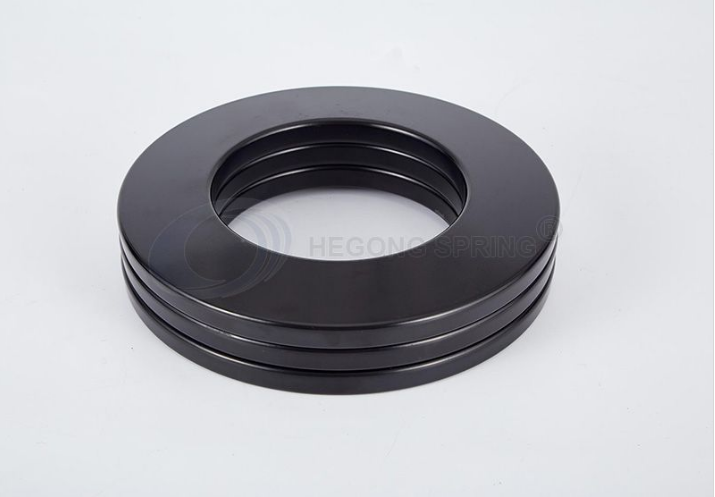Belleville springs, also known as Belleville washers or conical disc springs, are mechanical devices widely used in various industries for their ability to provide high load-bearing capacity and maintain constant tension or compression in bolted joints or assemblies. They are named after the inventor, Julian F. Belleville, who patented the design in the late 19th century.
Belleville springs are typically disc-shaped with a conical or cupped profile. They are commonly made from materials such as steel or stainless steel, known for their high strength and durability. The unique shape of Belleville springs allows them to generate a high amount of force in a compact space.

The main purpose of Belleville springs is to exert a specific amount of load or maintain a predetermined force in a given application. They offer several advantages over traditional coil springs or flat washers, including a higher load capacity, better deflection characteristics, and the ability to maintain a constant force over a wide range of deflections. Here are some of the common uses of Belleville springs:
Belleville springs are widely used in bolted connections to prevent loosening due to vibration, thermal cycling, or settling. Placing the spring under the bolt head or nut creates a constant tension that keeps the joint securely tightened. The high load capacity of Belleville springs ensures a reliable and consistent clamping force, maintaining the integrity of the joint.
In valve assemblies and actuators, Belleville springs play a critical role in providing precise and adjustable spring force. They help ensure proper sealing, actuation, and control by maintaining the required pressure or force in the valve mechanism. Belleville springs are commonly used in check valves, pressure relief valves, control valves, and other applications where precise force control is necessary.
Belleville springs find applications in clutch and brake systems, where they are used to engage or disengage the clutch or brake mechanism. The springs provide the necessary force for proper operation and help control the engagement/release characteristics. Belleville springs offer advantages such as compact size, high load capacity, and consistent performance, making them suitable for automotive, industrial, and aerospace applications.
Belleville springs are utilized in electrical switches and connectors to ensure a reliable electrical connection. They maintain constant pressure on the contacts, compensating for wear, thermal expansion, or other factors that may affect the contact reliability. The use of Belleville springs in electrical applications helps minimize resistance, ensure proper conductivity, and enhance the longevity of the contacts.
Belleville springs can be used as standalone springs or as part of shock absorber systems. In these applications, they provide cushioning, absorb energy, and dampen vibrations. The unique conical shape allows for efficient energy absorption and controlled deflection, making them suitable for applications such as vehicle suspension systems, industrial machinery, and equipment subjected to impact or vibration.
Belleville springs find applications in a wide range of industrial equipment and machinery. They are used to compensate for thermal expansion in pipelines, provide pressure relief in vessels and tanks, maintain tension in conveyor systems, and enhance stability in structures subjected to dynamic loads. Belleville springs offer versatility and reliability, enabling engineers to address various mechanical challenges across industries.
The selection of Belleville springs for a specific application depends on factors such as the required load capacity, deflection range, material compatibility, and environmental conditions. Design parameters, such as the number of springs stacked in series or parallel, are determined based on the specific application requirements and desired force characteristics.
In summary, Belleville springs are highly versatile mechanical devices used to maintain tension or compression, provide load-bearing capacity, and control forces in a wide range of applications. Their compact design, high load capacity, and constant force characteristics make them invaluable in industries such as automotive, aerospace, manufacturing, and power generation.
For more information about Belleville springs visit this link.